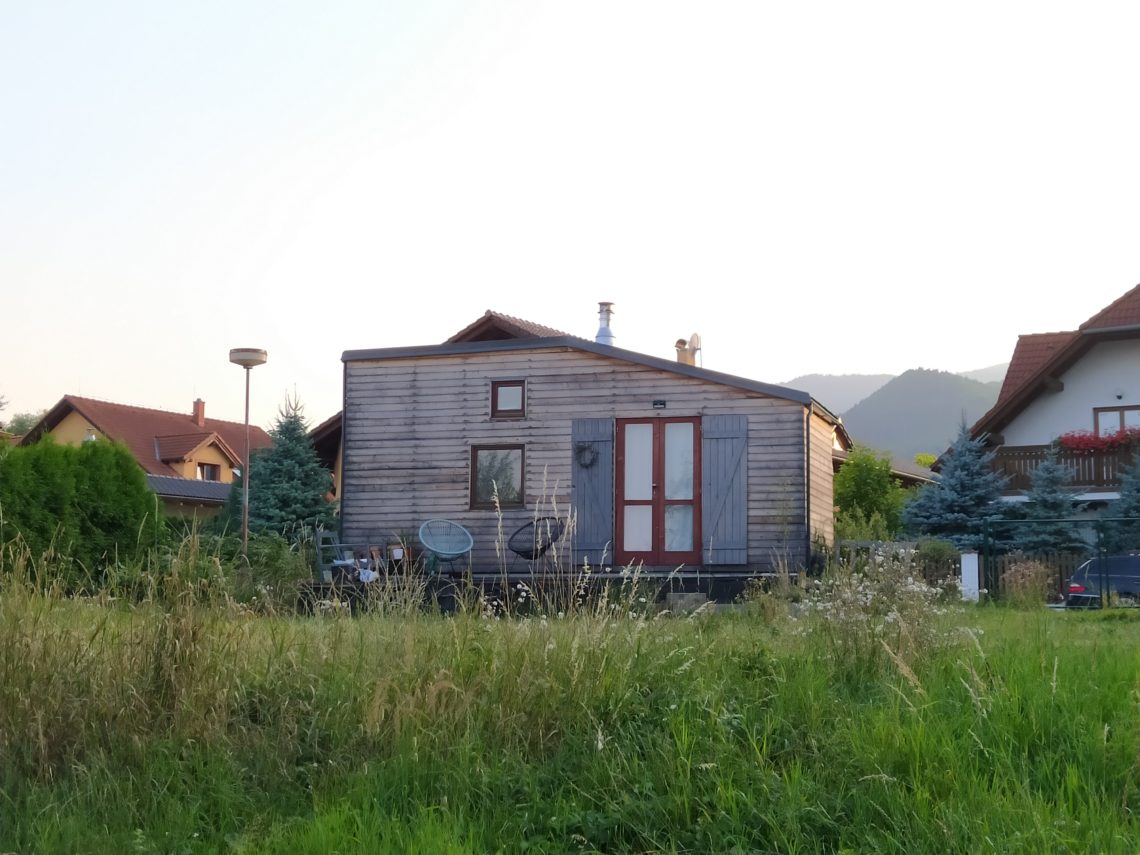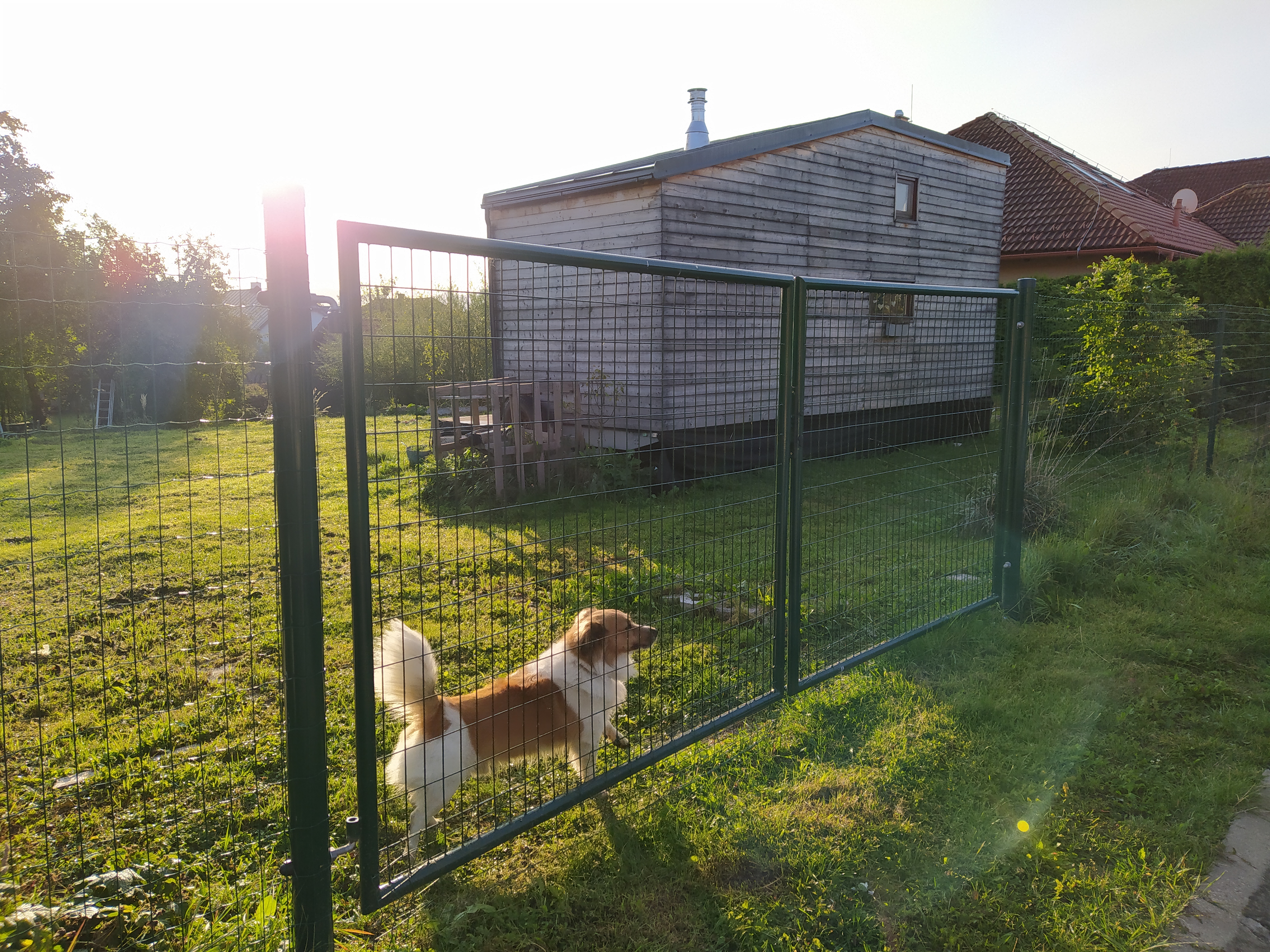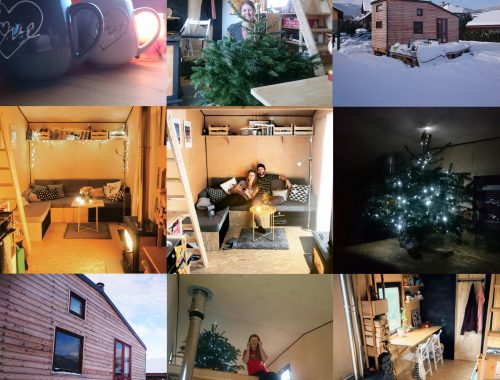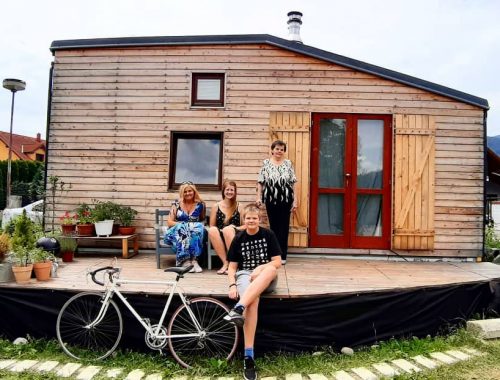
Pros and cons living in a tiny house
What are the advantages and disadvantages of living in a tiny house?
Is it worth building? Is it good to live in or is it nothing for you?
We have lived in our house on wheels for exactly 3 years and we think it is time to evaluate the advantages and disadvantages of living in such a space. We believe that we will help you make a decision and our personal experience will help you.
Living in a house on wheels has many advantages, but of course nothing is as rosy as it seems at first glance.
We love our house very much and therefore we will start positively with all the advantages.
ADVANTAGES:
- -PRICE –since it is a small space, as long as you build it by yourself and use a lot of second-hand things, you can build it pretty low cost. Our tiny house , with all the equipment and the offgrid system, cost us as much as we would have paid for two years of rent. The advantage is not only that after two years we live “for free” 😀 but when we decide to move to somewhere bigger, we will have a cabin left for the future, which we will move to some nice place.
- -MONTHLY COSTS – in Slovakia it is 20 euros per month for two. We buy gas in a bottle for cooking and water heating, wood for heating during the winter and land rent. The electricity is from a photovoltaic system, we filter rain water for washing and bring drinking water. It’s a great feeling when we don’t have to stress about losing our job. If we happen to lose our income for a certain period of time, nothing terrible happens really. We can save most of the money earned to buy our own land one day.
- -FAST HEAT- because it is a wooden building and we can heat a small space from 5 degrees to 22 degrees celsius in an hour during the winter. This is impossible in a brick building.
- -MINIMALISM –we try not to buy useless nonsense, only what we really needs. There is simply no room for bullshit. Well, there is a little bit of space and we can treat ourselves to something, but really in a limited amount. It’s quite liberating and saves enough money that we’d rather treat ourselves to a trip or dinner.
- -FREEDOM- we are not bound by the property and location. Anything can happen and we can decide to change the environment around us.
- -ECOLOGY- whether we want or not, we save water and electricity. We just have a limited amount of it. Still enough for a relatively comfortable life, but significantly less than a normal consumption. We are also more connected to nature. We know that when the sky is clear in the evening, it will be a cold night and we need to heat our home up more. Also, when it rains, we look forward to the water container being filled. 🙂
- -SUTAINABILITY- our house can be completely disassembled and is made of natural materials. Without glues. We like buildings that can be easily recycled after their service life. Why create future waste.
- -COSINESS- because it is custom-made and made of natural materials, we feel very good in it, just like in a cottage. It has a very good effect on the mental health after a day at work.
- -CLEANS FAST-when we both join forces, we are done in 20 minutes. A small space is a small space. 🙂
- -DOESN´T NEED HOUSE PERMIT-this point is debatable and does not apply to all mobile homes. (See also the article about the building permit.) Our trailer has its own registration number and house is not connected to the grid (connections like water, waste or electricity are considered as foundations in Slovakia). Since it is a homologated trailer, it can be parked anywhere like a vehicle. However you should not park it nature reserve or in a place that is designated for another function in the urban plan… The fact that you can park it anywhere does not mean that it will not bother anybody. We can confirm from our experience that it depends a LOT on the neighbors how they approach to such a housing.
DISADVANTAGES:
Before you decide to build your tiny house you shoul consider also all the disadvantages. There are certainly more of them in Slovakia than abroad, but they can be dealt with. Whether it’s worth it is up to you, and that’s why we´ve written all the minuses that we’ve come across over the time.
- – PERMANENT RESIDENCE- a house on wheels cannot be approved as a residential building in Slovakia. The house doesn´t have a house number without the building permit. There can be a problem with the mail also, as you don´t have a regular adress. We risked it, made a mailbox and wrote a number based on google maps and the houses around. It worked without a problem, but it would not work on every plot.
- *if the house is in an area where the construction of recreational facilities is allowed, theoretically it is possible to approve the house as a holiday cottage, then it is possible to have a house number and residence, but in such a case you cannot avoid a building permit. However, in general, every office has a different approach to houses on wheels, and what applies in one place may not apply in another.
- – WEIGHT LIMITATIONS –when building on a certified trailer, you are limited by the load capacity of the trailer. Ours has a load capacity of 3.5 tons, but its own weight is about 900 kg. That leaves roughly 2.6t for the house, which sounds like a lot, but its really not. :DIt results in many compromises. If you use trailer without a road registration, you don´t need to deal with the weight so much, but the problem with transportation and the building permit itself stays.
- – TRAILER CONTROL – the trailer must be tested every 4 years or temporarily removed from the register in Slovakia. The house is usually designed the way it can be removed from the trailer in case of MOT or you can certify your tiny house as a RV. The RV test is very expensive and complicated so we gave that up. It can be different in your country. Let us know 🙂
- – TRANSPORT- you can’t just tow your tiny house with a normal car and driver’s license B is not enough. In case you used trailer without registration transportation is even more complicated and expensive
- – DIMENSIONS- the maximum size is determined by the trailer and therefore if the space is not designed well, one can feel cramped in it.
- – THERMAL INSULATION –It’s a dilemma between better thermal comfort and less interior space and vice versa. We chose the path of a larger space, so we cannot expect miracles with an insulation thickness of 8 cm in the walls. It is enough, but it will never be like a normal house. When the heating is stopped at night, it is significantly colder within an hour, during the summer the house is warm, but with good fan and cross ventilation it´s totally ok. More about heating in winter HERE
- – MESS – yes, the space is small and can be cleaned quickly, BUT even if few things are out of a place,it already looks like an explosion. 😀
- – LIMITED RESOURCES with OFF GRID – the more money goes into the off-grid system, the more comfortable living is. Our off-grid system is ultra low cost, of course, 😀 because at that time we weighed every euro. Until corona, lockdown and home office, we were toally ok with ou low cost solution. The real stress test started during the first lockdown. It was beautifully sunny but it didn’t rain for a long time. We had enough electricity, but little water. In the second wave, it was exactly the opposite. We had plenty of water from the constant rain, but electricity was missing here and there. 😀 With low-cost photovoltaics, we could not run appliances with high demand of power. So no kettle, microwave, washing machine, electric radiator for heating or tempering. We only had a refrigerator running from spring to fall (we cooled outside in the winter 🙂 )
- – WIND AND STORMS – the house does not have a lightning rod and you can feel a strong wind by small movements of a house 🙂
- – WC – a most often used toilet in off-grid tiny houses is the separating composting toilet. Although it doesn’t smell and overall you can get used to it quickly, visitors will always look at you strangely :D. And even taking it out once in a while is quite annoying. 😀 We will write more about the choice of our toilet in the next blog
- – MISUNDERSTANDING – we saved this point for the end. It doesn’t seem like it, but it is a very important negative that must be considered before construction your unique house. Even if a house on wheels is an excellent temporary solution for you, a lot of people probably won´t understand it and will look at you strangely. They can even laugh at you behind your back. We have read a lot of negative comments on social media about us. As if we were forcing someone to live like that. 😀 It’s not good for the mental health and we don’t consider ourselves to be people who care too much about what others think. 😀 Sometimes it’s just not fun to stand out from the crowd. 🙂

Thank you for reading this far. As we mentioned at the beginning, the tiny house has many pluses and minuses and it is up to you how you see it . It was clear to us and if we could decide again, we would go the same way.
We will write why we no longer live in it in the next post.
If you like our articles or if we helped you, we will be very happy if you give us a like and follow on our Facebook, youtube and Instagram.
© The publication of parts or whole articles from tinyhouseslovakia.sk resources is prohibited without the prior written consent of the authors. If you are interested in further dissemination of our text, you can contact us at tinyhouseslovakia@gmail.com

Tiny house quarantine
You May Also Like

First winter
28. April 2019
Final transport and land preparation
29. September 2018
